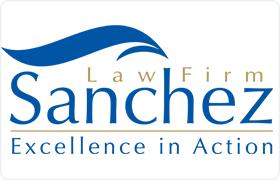 South Houston Credit & Debt Lawyers, Texas
South Houston Credit & Debt Lawyers, Texas
Sponsored Law Firm
-
 x
x

Click For More Info:
-
Sanchez Law Firm
150 W. Parker Rd. 3rd Floor Houston, TX 77076» view mapReal Estate Excellence In Action
We advocate for our clients in and out of court. When you and the system meet head on, you need an attorney who is experienced, credible, and active.
800-785-3351
Lawyers
1-3 of 3 matches
Personal Injury, Credit & Debt, Administrative Law, Elder Law, Juvenile Law
Personal Injury, Credit & Debt, Elder Law, Juvenile Law, Family Law
Employee Rights, Family Law, Credit & Debt, Personal Injury



 Benjamin Sanchez Houston, TX
Benjamin Sanchez Houston, TX Practice AreasExpertise
Practice AreasExpertise